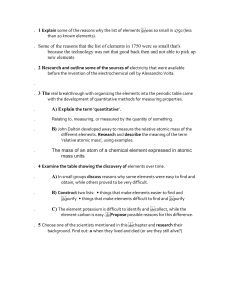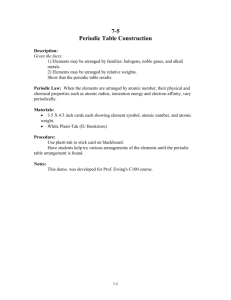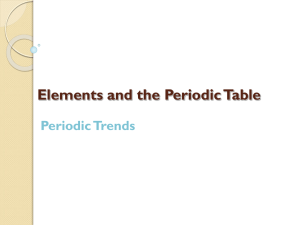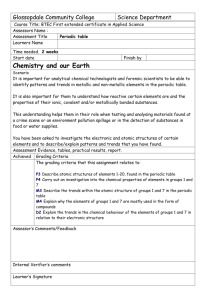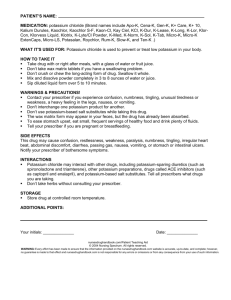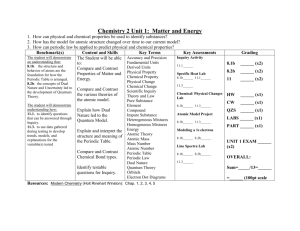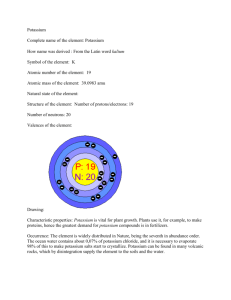Elements
advertisement
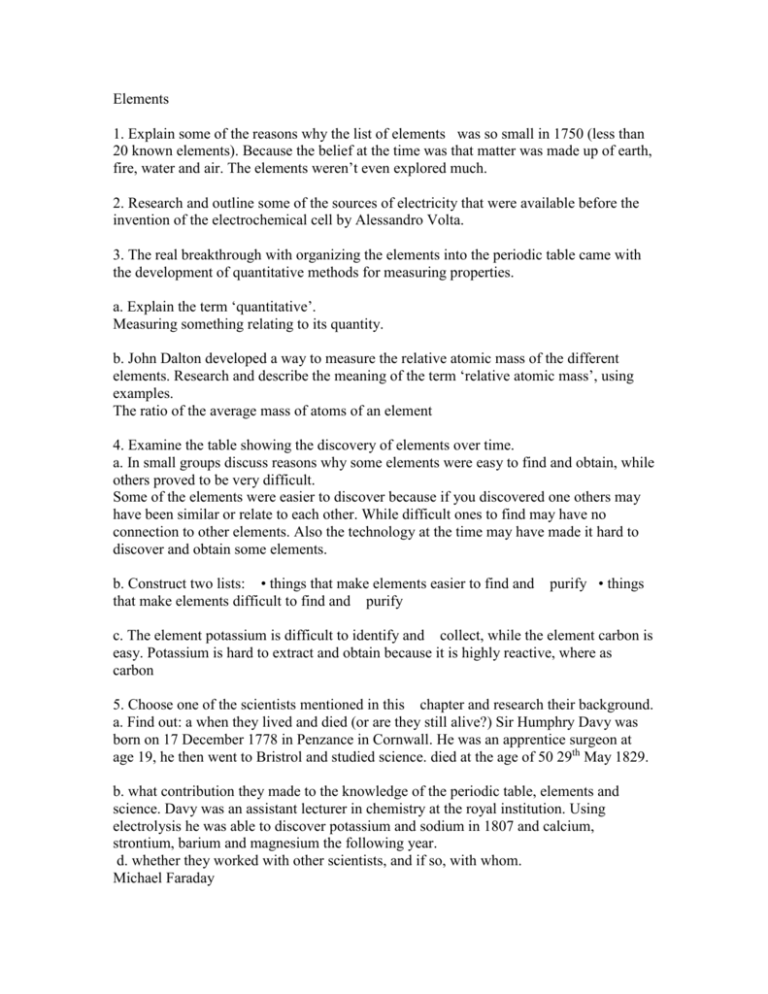
Elements 1. Explain some of the reasons why the list of elements was so small in 1750 (less than 20 known elements). Because the belief at the time was that matter was made up of earth, fire, water and air. The elements weren’t even explored much. 2. Research and outline some of the sources of electricity that were available before the invention of the electrochemical cell by Alessandro Volta. 3. The real breakthrough with organizing the elements into the periodic table came with the development of quantitative methods for measuring properties. a. Explain the term ‘quantitative’. Measuring something relating to its quantity. b. John Dalton developed a way to measure the relative atomic mass of the different elements. Research and describe the meaning of the term ‘relative atomic mass’, using examples. The ratio of the average mass of atoms of an element 4. Examine the table showing the discovery of elements over time. a. In small groups discuss reasons why some elements were easy to find and obtain, while others proved to be very difficult. Some of the elements were easier to discover because if you discovered one others may have been similar or relate to each other. While difficult ones to find may have no connection to other elements. Also the technology at the time may have made it hard to discover and obtain some elements. b. Construct two lists: • things that make elements easier to find and purify • things that make elements difficult to find and purify c. The element potassium is difficult to identify and collect, while the element carbon is easy. Potassium is hard to extract and obtain because it is highly reactive, where as carbon 5. Choose one of the scientists mentioned in this chapter and research their background. a. Find out: a when they lived and died (or are they still alive?) Sir Humphry Davy was born on 17 December 1778 in Penzance in Cornwall. He was an apprentice surgeon at age 19, he then went to Bristrol and studied science. died at the age of 50 29th May 1829. b. what contribution they made to the knowledge of the periodic table, elements and science. Davy was an assistant lecturer in chemistry at the royal institution. Using electrolysis he was able to discover potassium and sodium in 1807 and calcium, strontium, barium and magnesium the following year. d. whether they worked with other scientists, and if so, with whom. Michael Faraday
